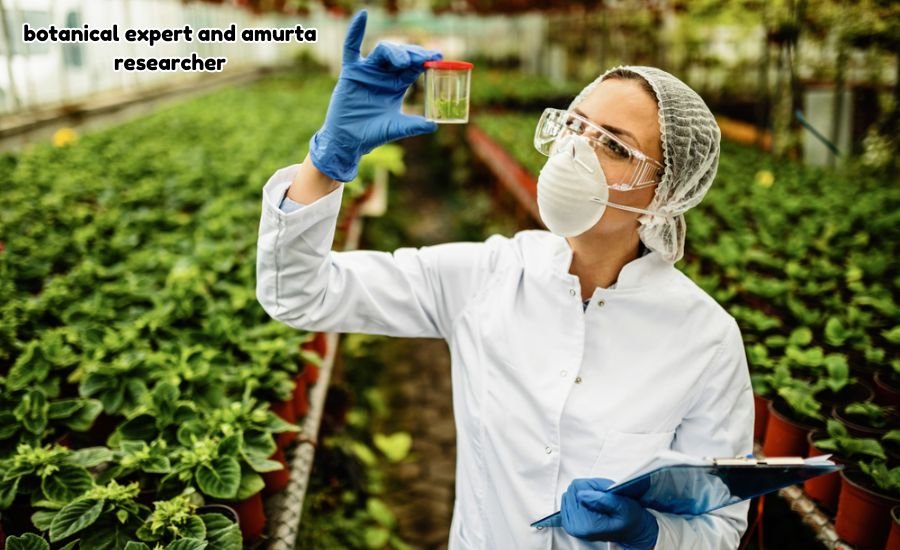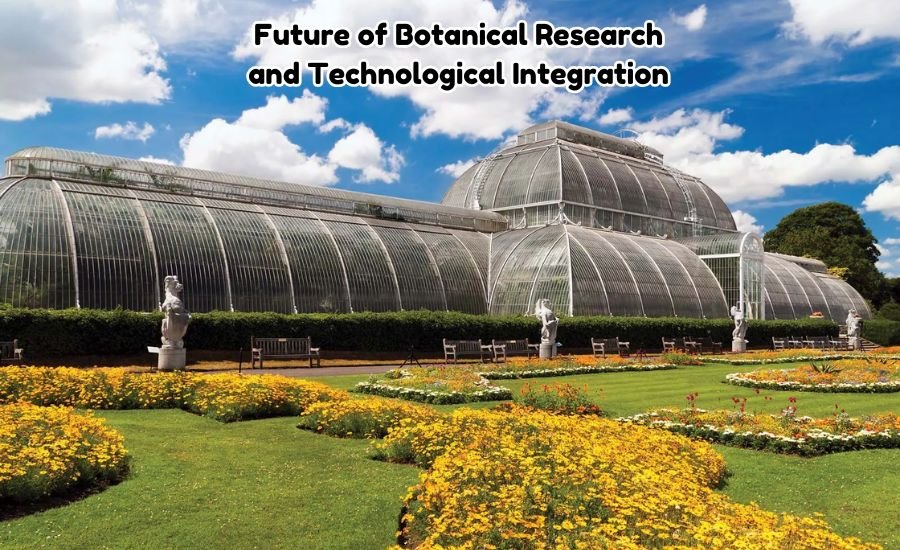A botanical expert and amurta researcher plays a significant role in understanding plant biology and natural medicine. These professionals study various plant species, their properties, and their applications in different fields, including agriculture, pharmacology, and ecology. Their research helps in identifying medicinal properties of plants, leading to the development of herbal treatments and sustainable farming practices.
A botanical expert and amurta researcher examines plant genetics, biodiversity, and the impact of environmental changes on plant growth. Their work involves both laboratory analysis and field studies, ensuring that the collected data is accurate and beneficial for scientific advancements. This profession is essential for conserving endangered plant species and discovering new plant-based solutions to health and environmental issues.
The Scientific Contributions of a Botanical Expert and Amurta Researcher

A botanical expert and amurta researcher contributes to scientific discoveries by analyzing plant compounds, understanding their interactions, and finding ways to utilize them effectively. Their contributions include:
- Identifying rare and medicinal plant species.
- Developing herbal remedies for various diseases.
- Enhancing agricultural productivity through plant genetics.
- Conserving endangered species and promoting reforestation.
- Studying plant-based biofuels for sustainable energy solutions.
- Exploring plant microbiomes for enhanced soil fertility.
- Developing plant-based biodegradable materials to reduce plastic waste.
The following table highlights some key scientific contributions:
| Contribution Area | Impact on Science and Society |
| Medicinal Research | Discovery of new herbal treatments and drugs |
| Agriculture | Development of high-yield and pest-resistant crops |
| Environmental Science | Conservation of plant species and climate studies |
| Biotechnology | Genetic engineering for better plant growth |
| Sustainable Energy | Research on plant-based biofuels |
| Eco-Friendly Materials | Development of biodegradable plant-based products |
Importance of Plant Classification for a Botanical Expert and Amurta Researcher
A botanical expert and amurta researcher classifies plants based on their structure, function, and uses. Proper classification is essential for understanding plant evolution, identifying new species, and developing scientific knowledge.
Plant classification helps researchers in:
- Organizing plants into families and genera.
- Studying evolutionary relationships.
- Identifying medicinal and toxic plants.
- Understanding plant adaptation to different environments.
- Analyzing the nutritional value of various plants.
- Enhancing crop breeding programs for better yields.
| Classification Type | Purpose and Benefits |
| Morphological | Identifies plants based on their physical features |
| Genetic | Studies DNA to understand plant evolution |
| Ecological | Analyzes plant adaptation to environments |
| Medicinal | Categorizes plants based on their health benefits |
| Nutritional | Examines plants for their dietary contributions |
Herbal Medicine and the Work of a Botanical Expert and Amurta Researcher
One of the primary roles of a botanical expert and amurta researcher is to explore herbal medicine and its benefits. Herbal treatments have been used for centuries, and modern research helps validate their effectiveness.
Key aspects of herbal medicine research include:
- Analyzing plant extracts for medicinal properties.
- Conducting clinical trials on herbal compounds.
- Developing sustainable harvesting methods.
- Educating communities on the safe use of herbal remedies.
- Investigating traditional medicine for scientific validation.
- Creating herbal-based skincare and wellness products.
| Herbal Plant | Medicinal Use |
| Aloe Vera | Skin healing, digestive aid |
| Ginseng | Boosts energy, improves cognition |
| Turmeric | Anti-inflammatory, supports immunity |
| Lavender | Reduces stress, promotes sleep |
| Ashwagandha | Reduces anxiety, improves stamina |
| Echinacea | Strengthens immune system |
Environmental Conservation and the Role of a Botanical Expert and Amurta Researcher
A botanical expert and amurta researcher plays a crucial role in environmental conservation by studying plant ecosystems and their interactions with the environment. Their work helps in:
- Preventing deforestation.
- Restoring degraded lands.
- Promoting biodiversity.
- Addressing climate change through afforestation.
- Studying the impact of pollution on plant life.
- Developing natural solutions for soil erosion prevention.
- Encouraging urban farming and sustainable gardening.
You May Also Like: Average-marathon-time
| Conservation Strategy | Benefits |
| Reforestation | Increases green cover, improves air quality |
| Biodiversity Protection | Preserves endangered species |
| Sustainable Farming | Reduces environmental impact |
| Urban Greening | Enhances city landscapes, reduces pollution |
| Eco-Restoration | Revives damaged ecosystems |
| Agroforestry | Combines agriculture and forestry for sustainability |
Future of Botanical Research and Technological Integration

With advancements in technology, a botanical expert and amurta researcher can now integrate modern tools for better research outcomes. Future trends in botanical research include:
- Use of Artificial Intelligence (AI) in plant classification.
- Development of drone technology for plant monitoring.
- DNA sequencing to discover new plant species.
- Smart irrigation systems for sustainable agriculture.
- Biotechnology for plant disease resistance.
- Blockchain for tracking medicinal plant supply chains.
| Technological Advancement | Impact on Botanical Research |
| AI-Based Plant Studies | Faster and more accurate plant identification |
| Drone Technology | Efficient monitoring of large-scale plantations |
| DNA Sequencing | Discovery of new medicinal plants |
| Smart Irrigation | Water conservation and efficient farming |
| Biotechnology | Genetically improved plant species |
| Blockchain | Transparency in the herbal medicine supply chain |
Conclusion
A botanical expert and amurta researcher significantly contributes to science, medicine, agriculture, and environmental conservation. Their research leads to new discoveries, sustainable practices, and the preservation of plant biodiversity. As climate change and deforestation continue to threaten ecosystems, their expertise becomes even more valuable in ensuring a greener and healthier planet. The integration of modern technology with botanical research promises an exciting future, enhancing our understanding of plants and their benefits to humanity.
Through continuous research and collaboration with scientists worldwide, botanical experts and amurta researchers pave the way for innovative plant-based solutions. Their dedication to preserving nature, improving healthcare, and fostering sustainable practices ensures a lasting impact on society. Their role will remain essential as humanity seeks to balance progress with environmental responsibility.
Get The Latest Updates On: Hibachibuffet
FAQs
What does a botanical expert and amurta researcher do?
They study plants, their properties, and applications in medicine, agriculture, and environmental conservation.
How do botanical experts help in herbal medicine?
They analyze plant compounds to develop natural treatments and validate traditional herbal remedies.
Why is plant classification important in botanical research?
It helps identify species, understand plant evolution, and discover new medicinal and agricultural uses.
What technologies do botanical experts use in research?
AI, drone mapping, DNA sequencing, and smart irrigation are some advanced tools they use.
How does a botanical expert contribute to environmental conservation?
They study ecosystems, promote reforestation, and develop sustainable farming techniques.
Can a botanical expert discover new plant species?
Yes, through genetic analysis and field studies, they identify previously unknown plant species.
How do botanical researchers improve agriculture?
They develop high-yield crops, pest-resistant plants, and sustainable farming methods.
What role do botanical experts play in climate change studies?
They assess plant adaptation, study carbon absorption, and promote climate-friendly practices.
What are the career opportunities for a botanical expert and amurta researcher?
They work in academia, pharmaceutical companies, conservation organizations, and biotech firms.
How does botanical research benefit daily life?
It provides safer medicines, improves food security, and supports eco-friendly innovations.
